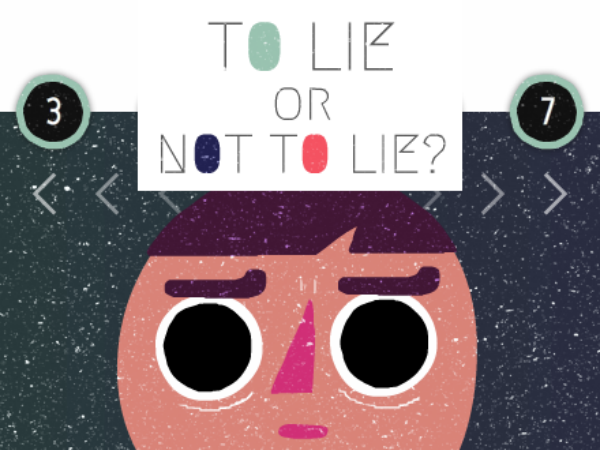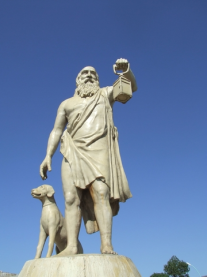This content is associated with The Open University's Arts and Humanities (Philosophy) qualification.
 Click on the image above, to start your interactive experience...
Click on the image above, to start your interactive experience...
Instructions
For best results, use a modern web browser. Upgrade to the latest version of Internet Explorer or try a free alternative like Google Chrome, Firefox or Safari.
Acknowledgements
Philosophical consultant: Professor Sophie Grace Chappell
Credits: Spartacus clip - used under 'crit and review'. The content must be kept within the context of the interactive at all times.
Photos: Getty images and PA Image
Explore more philosophy:
-
Halloween: What’s the devil got to do with it?
Read now to access more details of Halloween: What’s the devil got to do with it?Why is Halloween, an evening traditionally used to honour the deceased, now associated with all things spooky and gruesome?

-
Cynicism: Philosophy for dogs?
Read now to access more details of Cynicism: Philosophy for dogs?Where being truly human means living like a dog.

-
Why are people superstitious?
Read now to access more details of Why are people superstitious?Have you ever found yourself counting magpies, avoiding black cats or worrying about an upcoming Friday the 13th? You may have said 'Bless You!' after a loved one’s sneeze, or kept your fingers crossed for a good outcome. Perhaps you count your success in say an exam or driving test on a pair of lucky pants.

-
Introducing consciousness
Learn more to access more details of Introducing consciousnessWhat is consciousness? How does the brain generate consciousness and how can a science of the mind describe and explain it adequately? This free course, Introducing consciousness, will introduce you to the slippery phenomenon that is consciousness, as well as some of the difficulties consciousness presents to science and philosophy.

-
Introducing philosophy
Learn more to access more details of Introducing philosophyEver wondered what it would be like to study philosophy? This free course, Introducing philosophy, will introduce you to the teaching methods employed and the types of activities and assignments you would be asked to undertake should you wish to study philosophy and the human situation.

-
Philosophy: the nature of persons
Learn more to access more details of Philosophy: the nature of personsWhat is a person? This free course, Philosophy: the nature of persons, examines this philosophical question concerning the nature of personhood. You will examine whether a 'person' is the same as a 'human being', and look at whether it is our free will that in the end defines us as a 'person'.

Rate and Review
Rate this activity
Review this activity
Log into OpenLearn to leave reviews and join in the conversation.
Activity reviews
And I was with Aristotle all the way :)